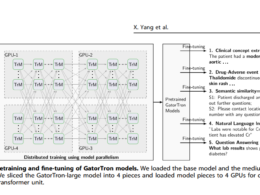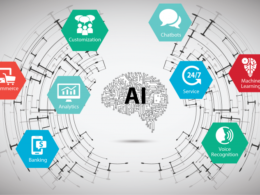health strategy institute (HSI)
multidisciplinary institute for
health strategy and digital health
Joaquim Cardoso MSc
Chief Research and Strategy Officer (CRSO),
Editor in Chief and Senior Advisor
June 18, 2023

AI shakes up way we work in three key industries
Professional services, filmmaking and coding are among the first to use the technology in everyday operations
Overall, AI is revolutionizing work processes in professional services, filmmaking, and coding, providing significant benefits in terms of time savings, efficiency, and expanded possibilities.
However, challenges related to limitations, ethical considerations, and job displacement need to be addressed to ensure a smooth transition and maximize the benefits of AI in these industries.
Artificial intelligence (AI) is transforming the way we work across various industries. This summary examines its impact on three key sectors: professional services, filmmaking, and coding.
In professional services, AI tools are being used to assist with legal case work, resulting in significant time savings, particularly for tasks assigned to junior staff. While AI adoption has been swift, limitations exist, and the technology may intensify work rather than replace jobs.
Filmmaking faces concerns about AI’s potential to reduce work opportunities for screenwriters and voice artists. However, AI technologies like dubbing and generative AI offer benefits such as expanding the reach of foreign-language films and enabling the use of “digital doubles” for actors.
In the coding sector, generative AI assists programmers in suggesting lines of code, increasing efficiency and saving time. However, understanding the AI-generated code and the need for experienced engineers to validate results remain crucial.
AI’s impact on these industries presents both opportunities and challenges, requiring the industry to navigate ethical considerations and define new roles and skill sets for the future of work.
Statistics and Examples:
Professional Services:
- Roughly 3,500 employees at Allen & Overy (A&O) have access to Harvey, an AI platform built on OpenAI’s latest models.
- Harvey has been used to prepare for transactions involving property rights in the metaverse, saving time compared to manual research by junior staff.
- PwC’s young workforce uses AI tools, including Harvey, to drop in documents and ask questions, democratizing access to AI technology.
Filmmaking:
- Flawless and Papercup have developed AI tools that enhance filmmaking processes, such as dubbing and dialogue insertion, saving time and money on set.
- Partnership between Flawless, XYZ Films, and Tea Shop Productions enables the conversion of foreign-language films to English using AI, expanding their reach.
- Concerns exist among screenwriters and voice artists regarding potential job loss due to AI-generated scripts and automated dubbing technologies.
Coding:
- Generative AI tools like ChatGPT suggest lines of code, assisting programmers in software development.
- Understanding how to fix AI-generated code is crucial due to limitations and errors in AI-generated solutions.
- AI has transformed the role of coders, freeing them from mundane tasks and allowing more focus on problem definition and design.
This is an Executive Summary of the article “AI shakes up way we work in three key industries”, published on the “Finacial Times”, authored by “Sarah O’Connor, Christopher Grimes and Cristina Criddle”












